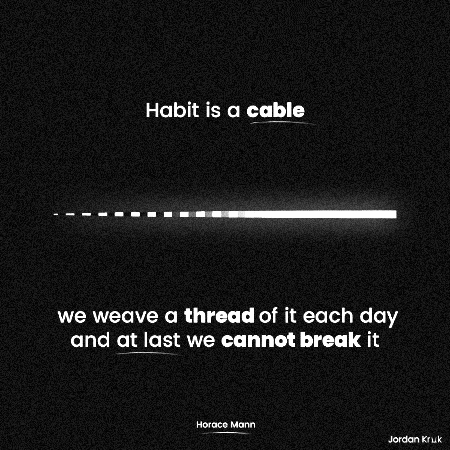
Good Day, and welcome to The Growth Compass!
3 NEW ANNOUNCEMENTS TODAY 🚨
We are hosting a FREE summit week called Ignite The Next Generation. It’s ideal for parents, coaches, and teachers who are looking for insights and ways to connect and teach the next generation of youth. Sign up HERE.
We have given all subscribers access to our FREE Growth Compass Library that you can access HERE.
We have added more FREE content with referral milestones! Take a look at our new offerings at the bottom of the newsletter. Hope you’re having a great week and let’s get started!

Here’s Where We Are Headed Today:
Dr. Kevin Elko on Great Coaches
Great Leaders Teach Habits
Great Posts of the Week
Free Mental Fitness Links 👇
Dr. Kevin Elko on Great Coaches
"A good coach inspires, a great coach teaches habit.” - Dr. Kevin Elko

Great Leaders Teach Habits
Today, we are going to talk about the power of teaching habits as a leader. The quote above hit me hard the other week, and it really got me thinking that the true genius of parents, coaches, and leaders is to not only inspire you, but also to teach you habits. Building habits means promoting consistency, discipline, and growth.

What it means to teach habits and why it matters: Dr. Kevin Elko's quote, "A good coach inspires, a great coach teaches habit," underscores the difference between providing short-term motivation and creating long-term success through consistent behavior. It highlights that while inspiration can spark action, it’s the development of positive habits that sustains achievement over time.
This distinction matters immensely for coaches, parents, and teachers, as their role is not only to motivate but also to instill enduring skills and routines in those they guide. By focusing on teaching habits, they ensure that their influence extends beyond moments of inspiration, creating a foundation for lasting success and resilience.
Why teaching habits works: By teaching consistent behaviors and routines, you ensure that people rise above what they feel to instead rely on their discipline and their habits. It creates a system for daily discipline and a foundation for sustained excellence.
The study "The Art of Forming Habits: Applying Habit Theory in Changing Physical Activity Behavior" by Verplanken and Orbell examined how habit formation can drive sustained behavior change. They found that consistent repetition of behaviors in stable contexts led to a 70% increase in the strength of physical activity habits. This resulted in long-term adherence to physical activities, even when external motivation decreased by 50%.
Inspiration is Momentary; Habits are Lasting - Good habits and bad habits run your life. Positive habits ensure that beneficial actions are performed automatically, creating lasting success even when initial inspiration fades. Dr. Joe Dispenza claims that by age 35, 95% of your day is run on autopilot through your habits.
Habits Lead to Consistency - Consistent effort leads to consistent results. When you’ve developed a steady and reliable approach to how you tackle challenges, you minimize fluctuations in day-to-day performance.
Empowerment through Autonomy - It is critical to empower people to take control of their own development. Habits foster self-reliance, reducing dependence on external motivation.
Focus on Process over Outcome - Emphasize the importance of daily practices and routines over immediate results. Growth happens through consistent, repeatable improvements. This approach reduces stress and pressure associated with outcomes, promoting continuous improvement and resilience.
Building Character and Life Skills - Instill habits that extend beyond sports or immediate goals. By teaching discipline, hard work, and perseverance, you help individuals develop character and life skills that benefit them in all areas of life.
So how can you actually teach habits to people?
Let’s look to James Clear and Simon Sinek for this one. To drive the outcomes that you want, you need to think about your identity and the process that aligns with those outcomes.

For today's conversation, truly focus on the first two steps because that is where meaningful change begins. When you change your identity, you transform your underlying beliefs and self-image, which directly influences your actions and habits.
By defining what you want and why it matters, you create a strong foundation for lasting change. Building and designing a supportive process ensures that these changes are sustainable and lead to continuous improvement.
Start with identity - Define what you want and why it matters. Focus on consistency and communicate the importance of growth of who you are. For example, the conversation becomes “I am a healthy person”, not “I want to lose weight.”
Build and design a process - Implement routines and systems that support the desired identity. Think about how can you get small wins, track progress, and design an environment where you can become successful. The process to begin is eating just 1 more vegetable per day and exercising for 10 minutes every day.
Manage the process - Reflect on your progress, grow, and adapt as you adjust to your new environment. Every 21 days, take time to evaluate and refine your approach.
By adopting these strategies, leaders can effectively teach and instill positive habits, ensuring sustained personal and organizational growth.
Great Posts from the Week
Free Mental Fitness Links 👇
That's a wrap for today. If you want to spread the joy, make sure to refer the newsletter to someone you think would benefit!
What would you like more of in the newsletter?
What I am reading and listening to
Want More?
Feel free to view all of our FREE resources online here and our growing content library!
Interesting in advertising? Fill out this survey and we’ll get back to you soon!

